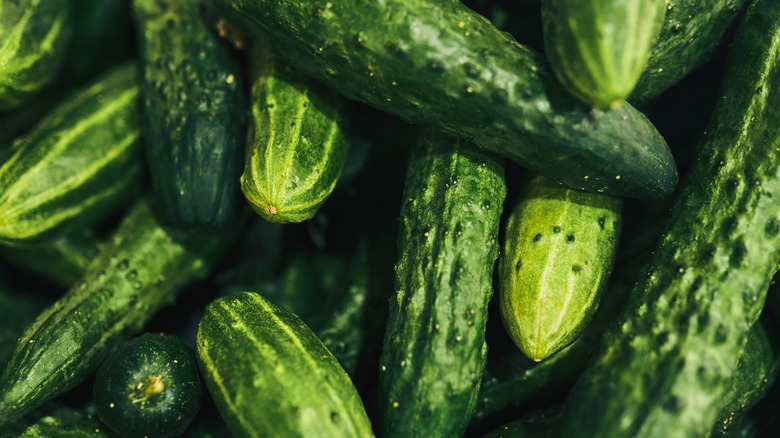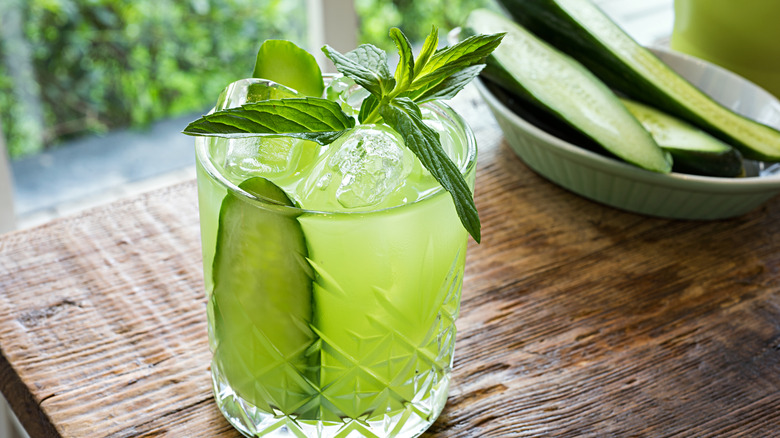Are Cucumber Varieties Interchangeable In Recipes?
If you've spent any time on the internet as of late, you've likely seen more than your fair share of TikTok-viral cucumber salads. But whether pressed, pickled with soy sauce, or paired with peanut butter for an even better cucumber sandwich, these long, lean, and green cylinders have been a culinary mainstay for far longer than our current, internet-savvy century.
Still, it's understandable if you can't recognize different cucumber varieties on sight (apart from their size) or aren't familiar with their taste and textural differences. What's important to know is that cucumber types do, as a matter of fact, vary widely: Some are sweet and others bitter, some are so dense you'll want to peel them and others are pleasantly crisp, some have large seeds and a higher water content and some have far fewer seeds for happy snacking.
In fact, if a recipe calls for one version and you pick up another, you'll likely convince yourself you don't like cucumbers at all. So save yourself the stress and read on to suss out which cucumbers are best for your various veggie needs.
Common cucumber varieties and when to use them
If you're an uninitiated cucumber eater who mostly encounters them sliced and scattered throughout a side salad, you're probably eating an American, or garden, cucumber. American cucumbers are plentiful and inexpensive, so you're likely to find them in a veggie sandwich or on a platter of crudités. The downside is that American cucumbers can be a bit bitter, particularly if you don't peel away their thick, waxy skin. American cucumbers are also quite seedy and water-logged, which makes them a challenging ingredient to incorporate in other dishes.
Looks-wise, the English cucumber (also called seedless or hothouse) looks like an American cucumber's first cousin. Long and dark green, these cucumbers can be distinguished by their packaging — they're often wrapped in plastic to preserve their more delicate skin. English cucumbers have a thin skin, subtle sweetness, and largely seed-free interior. This makes them too fragile for pickling, but perfect for infusing in a cocktail, like a crisp cucumber gimlet or a refreshing cucumber margarita.
Persian cucumbers are similarly sweet, thinly skinned, and somewhat seedless, but they're much smaller than other varieties and often sold in a pack. Persian cucumbers have a lower water content than other types of cukes, which means they'll stay crunchy and crisp in a salad. Their robust crunch also means they can stand a bit of heat and acidity, so rely on Persian cucumbers when cooking up a stir fry or marinating your cucumbers in vinegar for a batch of pickles.

